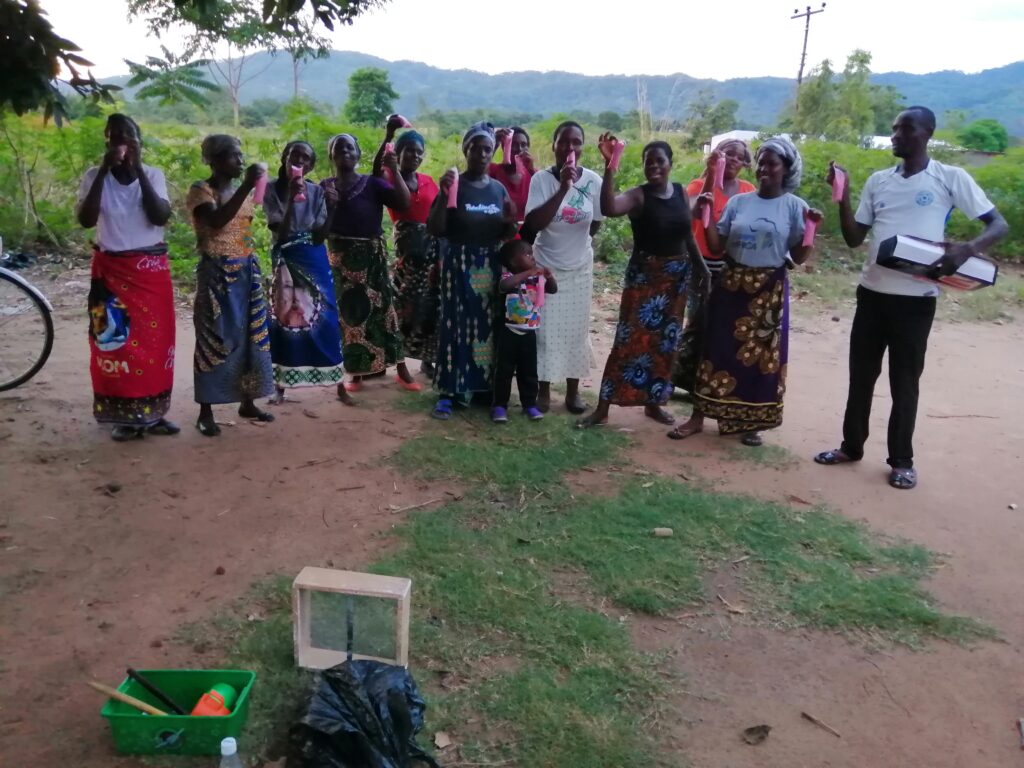
The members of the Kachidankho group already were in the business of soap-making but were not finding the financial success they needed to provide for their families. They, with the assistance of Angella, sought to increase their income, profit margins, efficiency, and quality of products. Before this project, many customers complained about the inconsistent size, shape, and consistency of their purchased soap, which occurred due to the variety of and improper use of materials, such as essential oils, string, rulers, and wooden trays. With input from the soap makers, business and production training sessions were coordinated for soap making and, to supplement and diversify income, juice making. Angella utilized her Human Centered Design and Asset-based Community Development skills to execute the project. Also, funding from CorpsAfrica and community members was used to purchase pigments, essential oils, and silicon and metal molds to ensure consistency in soap color, foam, and size. The new materials required a learning period to use properly; however, the group quickly adopted the new skills. With a consistent price and the new molds decreasing the size of the soap, customers were displeased with the product. Using this feedback the group of soap makers pivoted by reducing the price of soap from 120 K (0.15 USD) to 100 K (0.13 USD). This appeased customers and allowed for a larger consumer base. The group was able to apply their new skills to meet the specific demands of the community and will be able to reap continuous profit through the manufacture of a much-needed resource.
80% of Kachidankho group members have started personal businesses and are able to meet their financial and familial needs due to their personal soapand juice businesses. 70% of group members, compared to the pre-project 20%, are now able to properly produce soap.
The gross revenue from these endeavors have more than doubled. Biweekly, the group earns 120,000 K (149.30 USD) and 15,000 K (18.66 USD) from soap-making and juice-making, respectively.
Relationships with suppliers were established, so that community members could restock their materials; and not only were these supplier relationships established, but the community embraced a group mentality with shared responsibilities during production and selling. The expected longevity and effectiveness of this project will be maintained by the determined community members (now business people), as well as Mr. Mauka, who was a chairperson of this project.